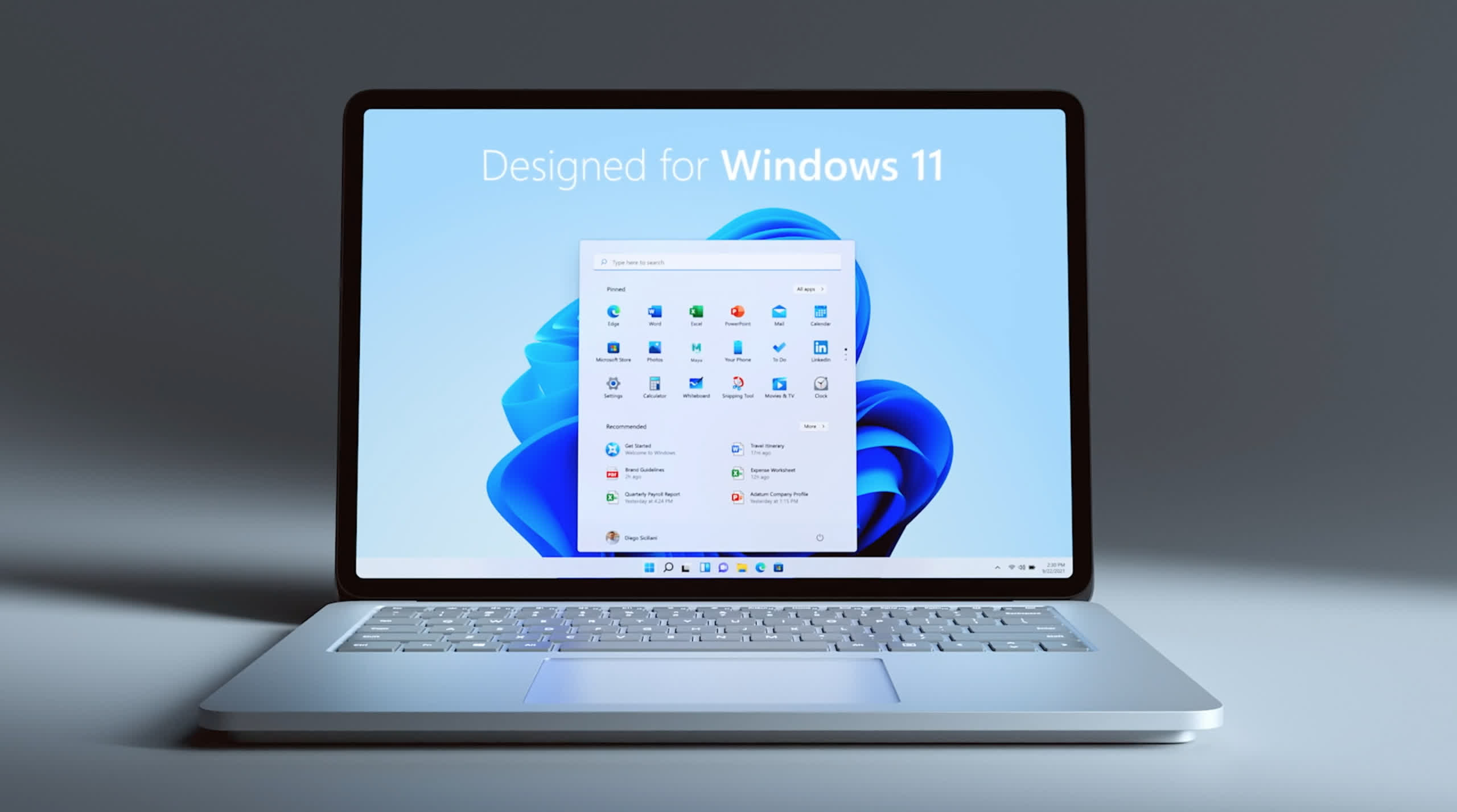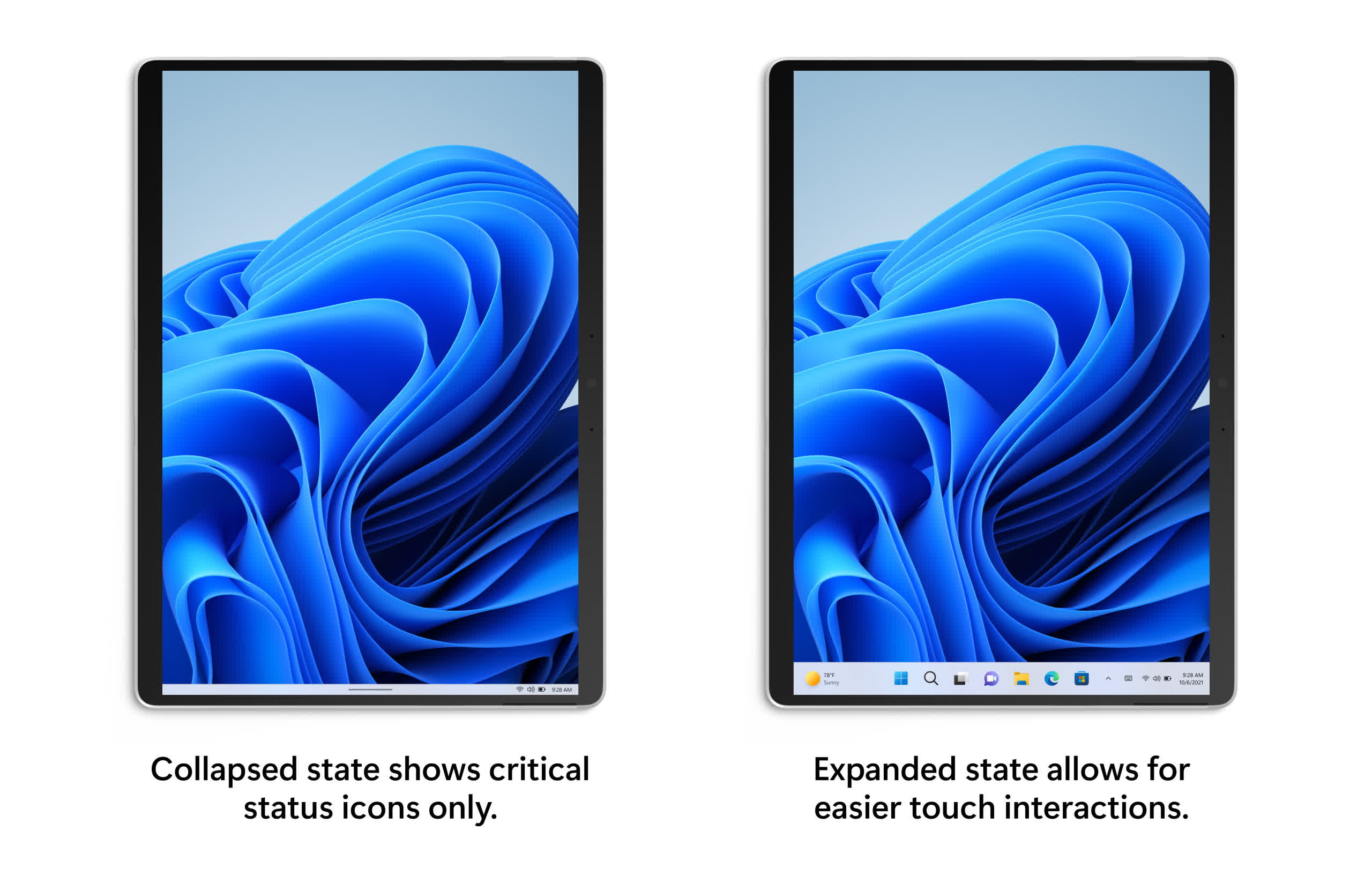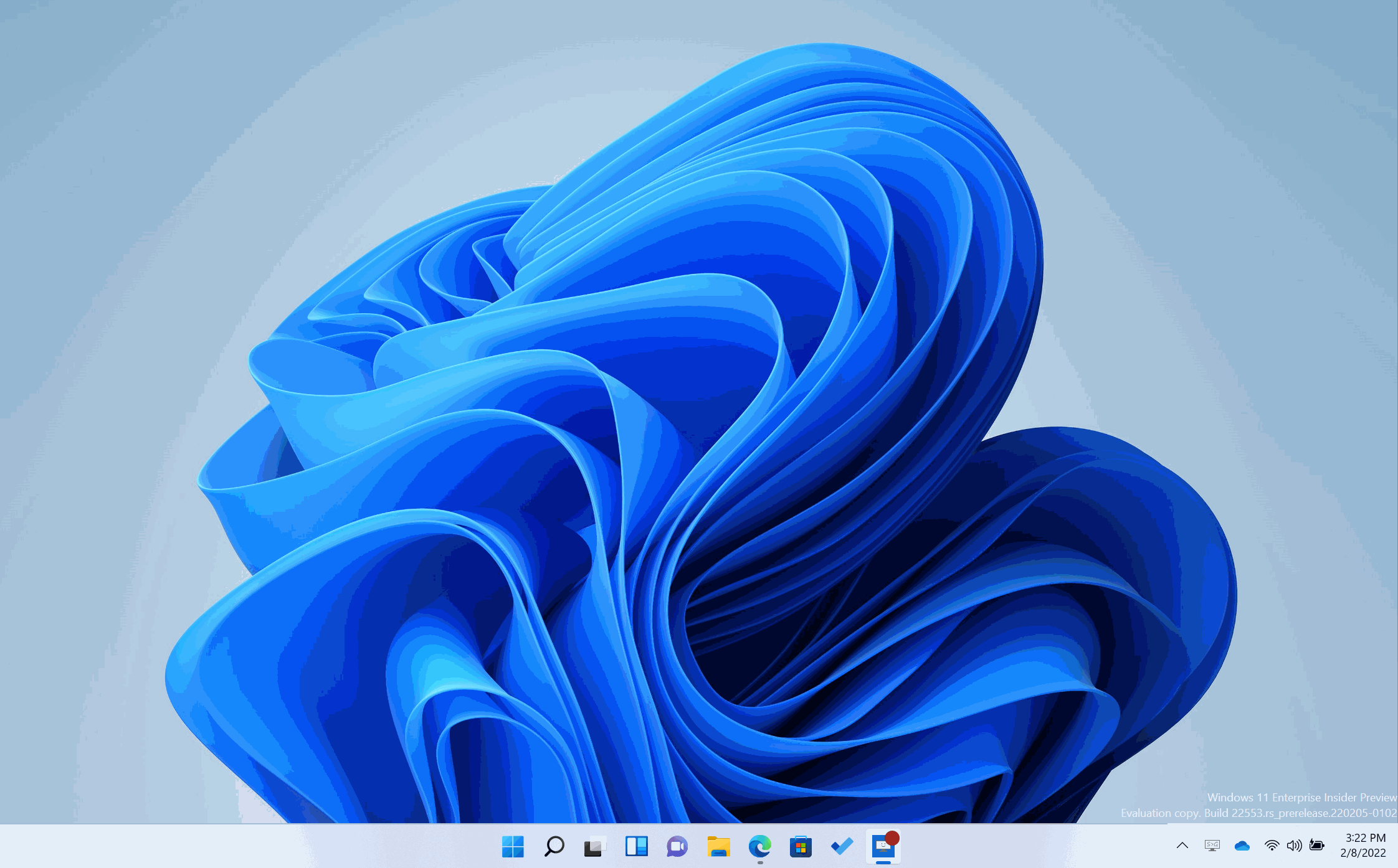In brief: This month, a couple of new Windows 11 Insider Preview builds have started to add more features for touch screen users. They mainly include touch and gesture functions for the taskbar, start menu, and other functions available on the desktop.

Last week’s Windows 11 Insider Preview Build 22557 was a reasonably significant release. Among its additions were new touch gestures for opening and closing the Start Menu. Users with touch screens can now swipe up on the taskbar to open the menu.

They can swipe left or right in the menu to switch between pinned apps, all apps, and recommended apps. Swiping down closes the Start Menu, and the same gestures on the bottom right side of the taskbar will open and close the Quick Settings.
This week’s build 22563 gives users a tablet-optimized taskbar. When on a tablet or 2-in-1, the taskbar will now automatically hide and unhide itself when a keyboard is disconnected or reconnected (or folded and unfolded), respectively. Users can check if their device is compatible with the feature by heading to Settings > Personalization > Taskbar > Taskbar behaviors.

Build 22557 added several more new features, like folders for the pinned apps in the Start Menu. There is also a Do Not Disturb switch and a Focus mode similar to the one Apple introduced in iOS 15 to control notifications. Users can now activate auto-generated captions for videos, though only in English for now. There are also improvements to the File Explorer, the Task Manager, window snapping, and a lot more.
https://www.techspot.com/news/93550-windows-11-previews-touch-mode-taskbar-adjustments.html